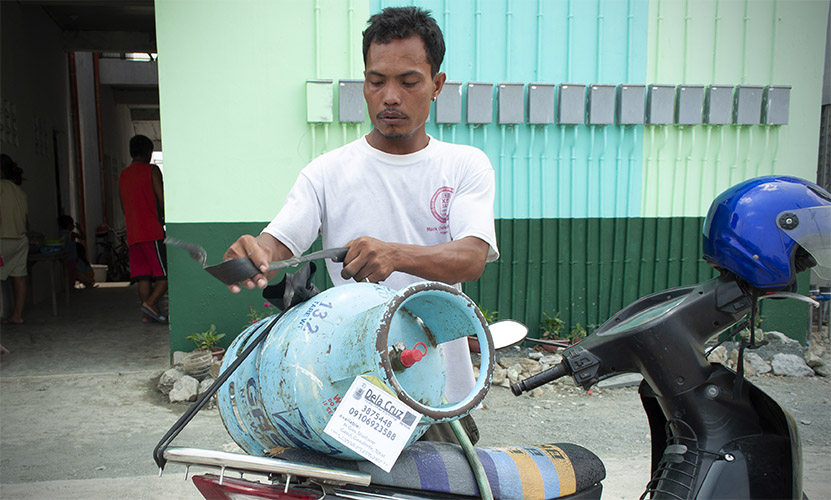A bill streamlining existing laws and regulating the domestic liquefied petroleum gas (LPG) industry to ensure consumer welfare against the rampant industry malpractices and provide consumer choice has been approved on third and final reading in the Senate, Senator Win Gatchalian said.

“Ang layon natin dito ay siguruhing may pamantayan ang industriya upang maprotektahan ang kapakanan ng mga mamimili. Nais din natin silang bigyan ng pagkakataong makapamili ng tatak ng LPG. Sa ngayon kasi, kung gusto mong magpalit ng tatak ng LPG dahil mas mura, kailangan mo munang bumili ng bagong silindro,“ he said on Senate Bill No. 1955 or the proposed LPG Act.
Gatchalian noted the lack of any existing regulatory framework to oversee the domestic LPG industry even in the wake of LPG-related accidents that resulted in the loss of lives, limbs and properties as shown in the explosion that occurred in the Serendra condominium complex in Taguig City in 2013, in a water refilling station in Sampaloc in 2019 and the most recent, in a Makati restaurant. The Energy Committee Chairman emphasized that safety is crucial because LPG is a highly flammable and an explosive fuel that poses a major fire hazard if not stored or handled properly.
The Proposed National Energy Policy and Regulatory Framework for the Philippine LPG Industry seeks the establishment of the LPG Cylinder Improvement Program to ensure that unsafe cylinders will be immediately taken out of circulation and replaced with new ones to significantly decrease LPG-related explosions and fires. Likewise, the measure intends to institutionalize the Cylinder Exchange and Swapping Program, allowing consumers to shift to another brand of LPG by bringing any empty LPG cylinder to any retail outlet.
Several versions of the bill has been introduced as early as 2004 in hope of instituting a national energy policy and regulatory framework to govern the importation, refining, refilling, transportation, conveyance, distribution and marketing of LPG as well as the manufacture, requalification, exchange and swapping of LPG pressure vessels.
Data from the Philippine Statistics Authority (PSA) showed that LPG is considered a basic necessity as four out of 10 Filipino households are dependent on it for daily cooking, with overall domestic consumption growing at an average of six percent annually. LPG is also being used by various industries, commercial establishments and even as fuel for motor vehicles.


